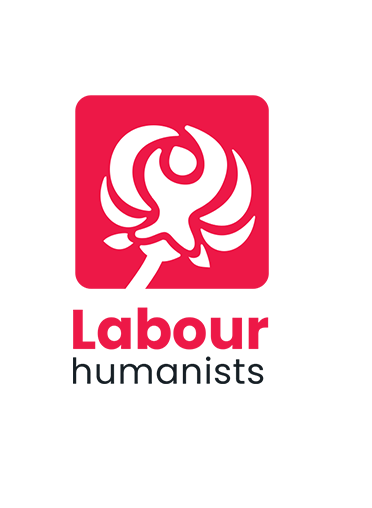





Humanists UK and Labour Humanists hosted a packed-out fringe event at the Labour Party conference in Liverpool on Monday night, with the reception room overflowing with delegates wanting to hear from Humanists UK Chief Executive Andrew Copson and a panel of humanist MPs and peers.
The tone of the evening was upbeat but uncomplacent – encouraging delegates at the party conference to get involved as members, volunteers, and campaigners, or by writing to their local MP, as a number of opportunities in the King’s Speech and elsewhere had given MPs renewed confidence that a number of longstanding humanist reforms could be addressed in the current parliamentary term.
Rachel Hopkins MP, chair of the All-Party Parliamentary Humanist Group (APPHG), spoke first. She came over buoyant and optimistic, citing the many possible opportunities in the new Parliament to affect positive social and legal change, and the swelling numbers of the APPHG following an election which returned a historic number of non-religious MPs (40%). She told delegates that she would continue to champion urgent action on humanist marriage in England and Wales, given Labour’s repeated promises in Opposition to grant legal recognition if elected, the court case pointing to a human rights breach here, and a lack of practical or financial barriers to doing so.
Next to speak was Lord Alf Dubs, who chose to focus his remarks on the importance of an upcoming Private Member’s Bill on assisted dying, which the Prime Minister has promised to give enough time to potentially pass through both Houses of Parliament. ‘Although we have a large number of MPs,’ he said, ‘it doesn’t mean they all agree with us. The opposition is vocal, and it’s up to us to make sure the truth is heard.’






Immigration Minister Angela Eagle MP then spoke about the ongoing work of humanists inside and outside of Parliament in relation to a number of campaigns, and the historic opportunity now before parliamentarians to realise several long-standing humanist ambitions. Praising Humanists UK’s policy team for their diligent campaigning and high-quality briefings, she finished by saying ‘It’s important for humanists to continue asserting that we can contribute to society without a belief in a higher power. We respect religious people, even if we don’t share their beliefs. More power to your elbow!’
Ruth Cadbury MP, who identifies as a Quaker and a humanist, also emphasised the importance of rallying around the upcoming Private Member’s Bill. She also touched on the possibilities offered by the newly founded House of Commons Modernisation Committee, which will look at archaic practices in the Commons. She pointed out how the outdated practice of using attendance at Anglican parliamentary prayers to reserve limited seats in the House of Commons was seen as an increasingly big problem, given Labour’s large new intake of non-religious MPs who naturally want to take part in debates, only to find they cannot claim a seat and therefore cannot be called to speak.
Closing the panel was Wales Office Minister Dame Nia Griffith MP, who gave a rousing speech on the various prospects in the next few years to achieve humanist campaign aims, including possibly removing bishops from the House of Lords via Labour’s promised consultation on wide-reaching Lords reform. She said the Government was also committed to curriculum reform and to a full and enforceable ban on harmful anti-LGBT conversion practices. She closed her remarks by saying that, after years of intensifying divisive rhetoric in politics and society, humanists had a special role in conducting themselves respectfully and bringing the country together: ‘Our message of tolerance, diversity, and inclusion is so important.’





Across the conference, Humanists UK spoke to dozens of MPs as well as peers, councillors, Assembly Members, Members of the Senedd, and Members of the Scottish Parliament, receiving enthusiastic support from across the party on its two key issues at this year’s conference – humanist marriage and the right to die for the incurably suffering.
Labour Humanists, the party-political humanist group within Labour affiliated to Humanists UK, co-hosted Monday night’s reception and received a surge in new supporters, eager to take up the challenge of promoting humanism within the new party of government.
Humanists UK attends all the major party conferences to meet with parliamentarians, to advocate for humanist issues, and to engage with our party-political members and supporters. We were also at the Lib Dem and Green conferences and will be at the Conservative Conference.
Notes
For further comment or information, media should contact Humanists UK Director of Public Affairs and Policy Richy Thompson at press@humanists.uk or phone 0203 675 0959.
Humanists UK is the national charity working on behalf of non-religious people. Powered by over 120,000 members and supporters, we advance free thinking and promote humanism to create a tolerant society where rational thinking and kindness prevail. We provide ceremonies, pastoral care, education, and support services benefitting over a million people every year and our campaigns advance humanist thinking on ethical issues, human rights, and equal treatment for all.




